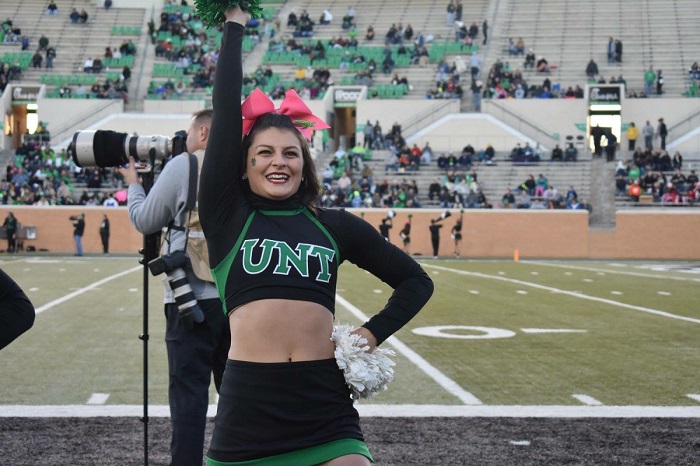UNT Cheerleader Warns Young Athletes About Rare Heart Defect

AUSTIN (KXAN) — A routine checkup led to an eye-opening diagnosis of a rare heart defect for a University of North Texas cheerleader. It happened when 20-year-old Skyler Sanders was still a student at Hays High School.
For Sanders, cheerleading is life. She practices with her all-girls team three days a week. She also works with a university trainer which adds more hours to her weekly practice.
“I started cheering when I was about nine and ever since then I’ve just wanted to be a collegiate cheerleader,” she said.
But, while she was a high school cheerleader her heart and breathing started doing a routine on her. Sanders began experiencing heart palpitations and shortness of breath.
“It’s like your heart wants to jump out of your chest,” she said. “I’d get real short of breath and have to sit down.”
That kept happening until her doctor heard a heart murmur while she was in high school. Doctors diagnosed Sanders with Atrial Septic Defect (ASD).
“It’s an abnormal hole between the left and right atrium,” said Dr. Faraz Kerendi, Heart Hospital of Austin cardiothoracic surgeon. “Everybody has that at birth and they close shortly after birth.”
Doctors say ASD doesn’t always show signs or symptoms because many young athletes’ hearts can handle the stress of strenuous exercise. But when it does manifest, some of the symptoms include shortness of breath, fatigue and possible swelling of the legs. If untreated, ASD can cause heart failure and stroke.
Sander’s hole, which was about the size of a quarter, never closed. Eight months ago, Dr Kerendi closed the hole with a non-invasive surgery done through her rib cage which allows for a faster recovery and little scaring.
“Most people that I see as a surgeon, don’t want their chest opened,” Dr. Kerendi said. “Skyler is a competitive cheerleader, so she can get back to that much more quickly. And cosmetically, it’s more appealing.”
Doctors believe ASD is so rare because by the time a child reaches adolescence the hole closes on its own. For some children, doctors are able to spot it. Then there are cases like Sander’s that go undetected for years.
Dr. Kerendi said parents should consider free electrocardiogram screenings for teens at the Heart Hospital of Austin. The hospital offers free heart checks twice a year; and, the next screening is in early August.
“Sometimes it can be missed on physical exams, so the echo may be the only way to really detect it,” said Dr. Kerendi.
Sander’s UNT cheer team is preparing for a major competition in April. She is able to train as hard as she did before. But, she has a clear message to young athletes to make sure their heart is healthy.
“I’ve honestly never felt better cardio-wise,” she said. “Just go get a checkup of everything. Make sure your body is working correctly. Because you never know.”
Story Credit: http://kxan.com/2018/02/16/unt-cheerleader-warns-young-athletes-about-rare-heart-defect/


